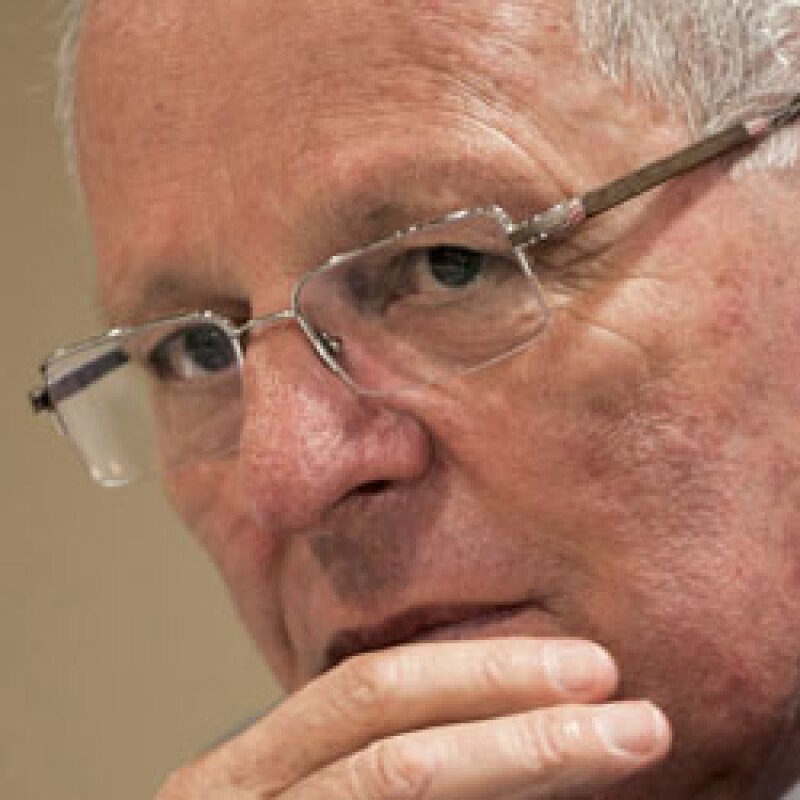
The United States and Europe must reconsider their “anti-bank” regulation in order to deliver the boost to world economic growth that ultra-low interest rates have failed to produce, Peru’s president said.
In an interview with GlobalMarkets, Pedro Pablo Kuczynski accused Western policymakers of forgetting basic economic theories about the impact of bank-created money on growth. “It is the first day of class in any textbook on monetary economics,” he said.
He said that the implementation of Dodd-Frank, the US financial rulebook, and what he called the “anti-bank” policies of Europe, would consign the two largest economic blocs to slow growth. “These policies have to change if they want to return to growth,” he said.
He also attacked the new unconventional monetary policies being followed by the central banks of the US, eurozone, the UK, Switzerland and Japan. “I don’t think that central bank policy is very important at the moment, because it has very few tools left,” he said.
His comments echo a warning earlier in the week by IMF managing director Christine Lagarde who told GlobalMarkets that said monetary policy was “being stretched thin” and was “clearly transforming the paradigm in which banks are operating”.
Kucyznski, 77, is not a traditional politician spouting hollow rhetoric. He not only has a degree in economics from Princeton University, but also was a top manager in Peru’s Central Bank in the 1960s and returned as finance minister in the 2000s. In between, he held key positions at the World Bank and IMF, and served as CEO of banking, investment and mining firms.
His government is bucking the trend in the region with a package of reforms to spur the economy to expand at a sustainable rate of 5% annually over the coming years. Peru’s GDP expanded by 4% in the first half of the year and the expectation is for it to finish the year at that rate. The ultimate goal is to get many more people into the banking system.
WEB OF RED TAPE
In late September Congress approved special powers that will allow the administration to rule by decree for 90 days on five large areas, ranging from economic reform to security. While other countries in the region are increasing taxes, the Kuczynski government has opted to lower them to stimulate growth from the private sector.
The plan calls for lowering the value-added taxes by one percentage point, to 17%, reworking income tax to cap the total pressure on corporates at 33%, and creating special categories for small and medium enterprises to get them into the formal economy.
“The tax change will allow small enterprises that are outside the system to join in with much lower taxes for a period of 10 years so that they formalise and have access to bank credit, which will be a big source of growth down the road as the programme matures,” he said.
Bank credit in Peru is about 50% of GDP, which is low for the region. In neighbouring Chile bank credit is roughly equal to GDP. The Association of Banks reported in August that there were just over 213,000 outstanding mortgages in a country of more than 30 million people.
